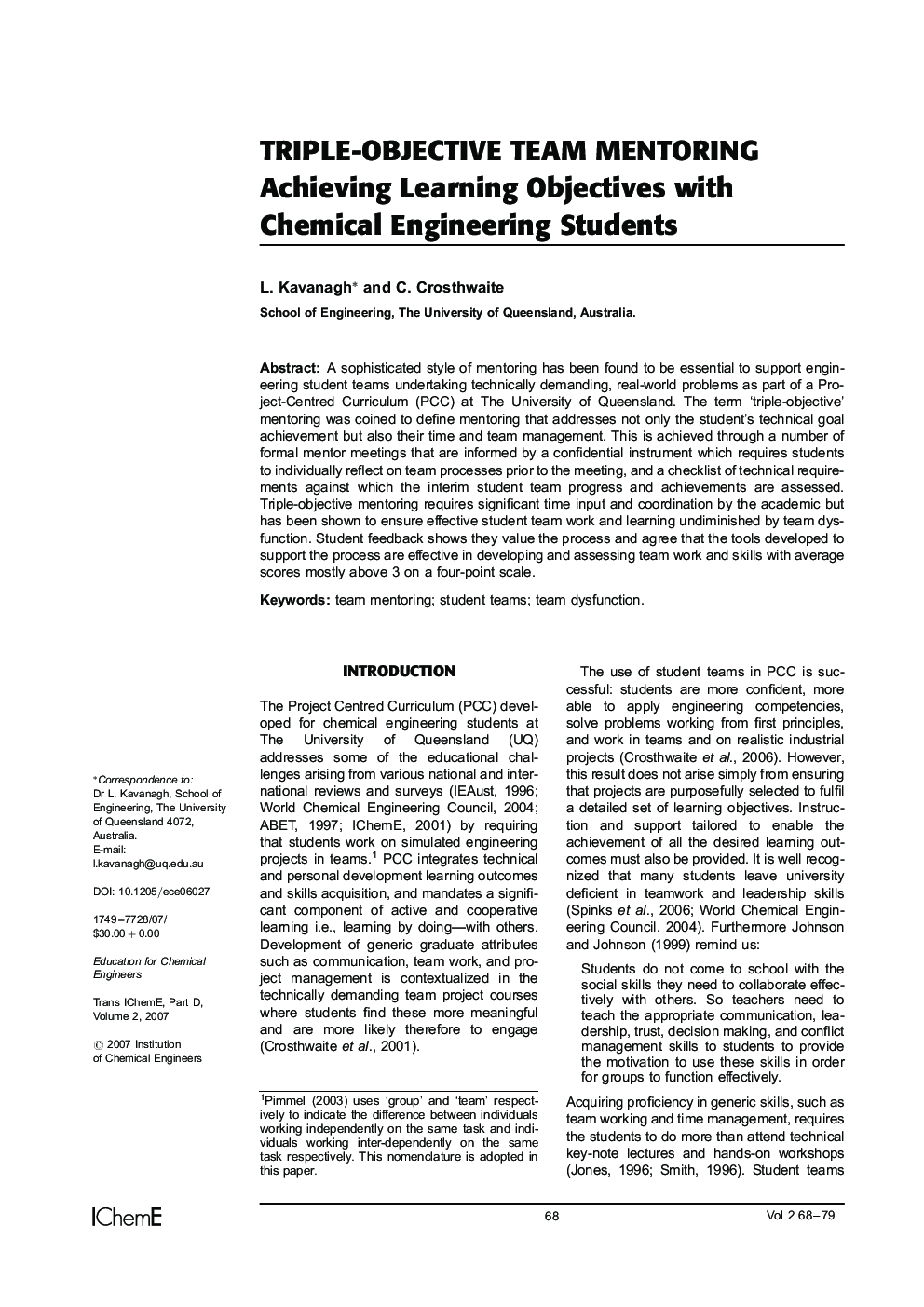| Article ID | Journal | Published Year | Pages | File Type |
|---|---|---|---|---|
| 178571 | Education for Chemical Engineers | 2007 | 12 Pages |
A sophisticated style of mentoring has been found to be essential to support engineering student teams undertaking technically demanding, real-world problems as part of a Project-Centred Curriculum (PCC) at The University of Queensland. The term ‘triple-objective’ mentoring was coined to define mentoring that addresses not only the student's technical goal achievement but also their time and team management. This is achieved through a number of formal mentor meetings that are informed by a confidential instrument which requires students to individually reflect on team processes prior to the meeting, and a checklist of technical requirements against which the interim student team progress and achievements are assessed. Triple-objective mentoring requires significant time input and coordination by the academic but has been shown to ensure effective student team work and learning undiminished by team dysfunction. Student feedback shows they value the process and agree that the tools developed to support the process are effective in developing and assessing team work and skills with average scores mostly above 3 on a four-point scale.
